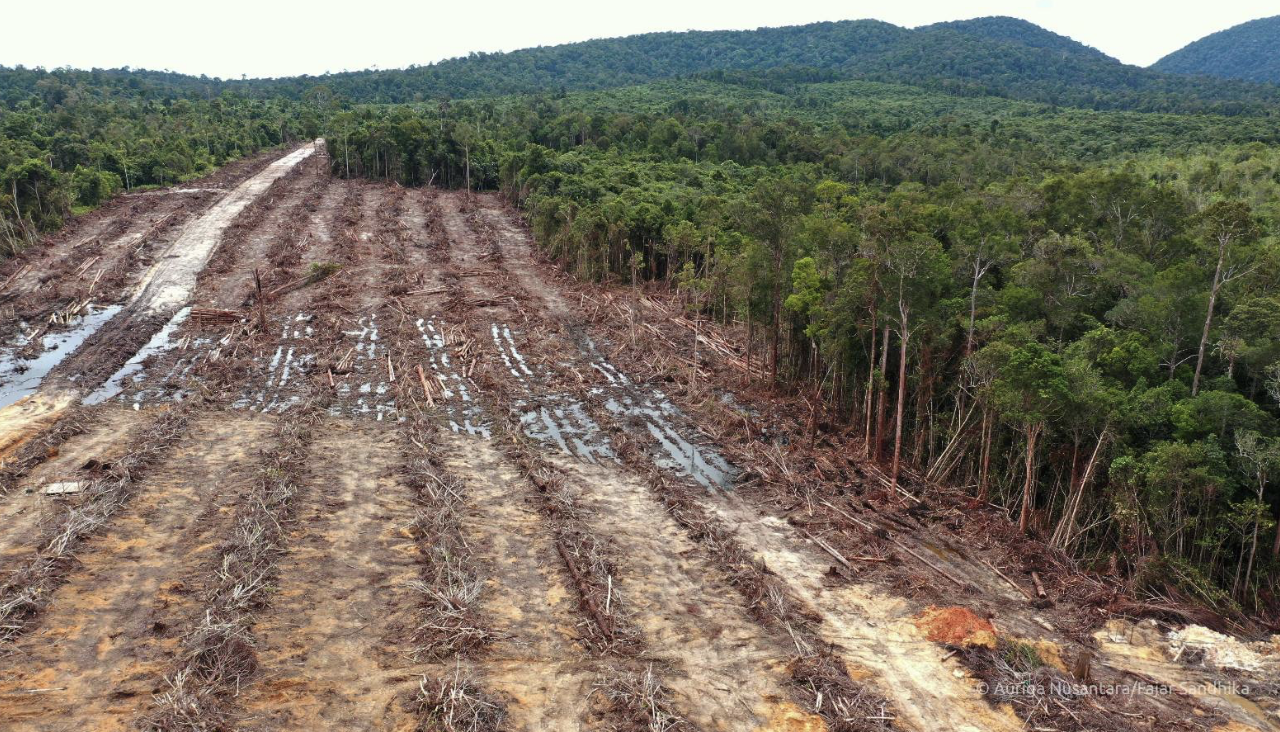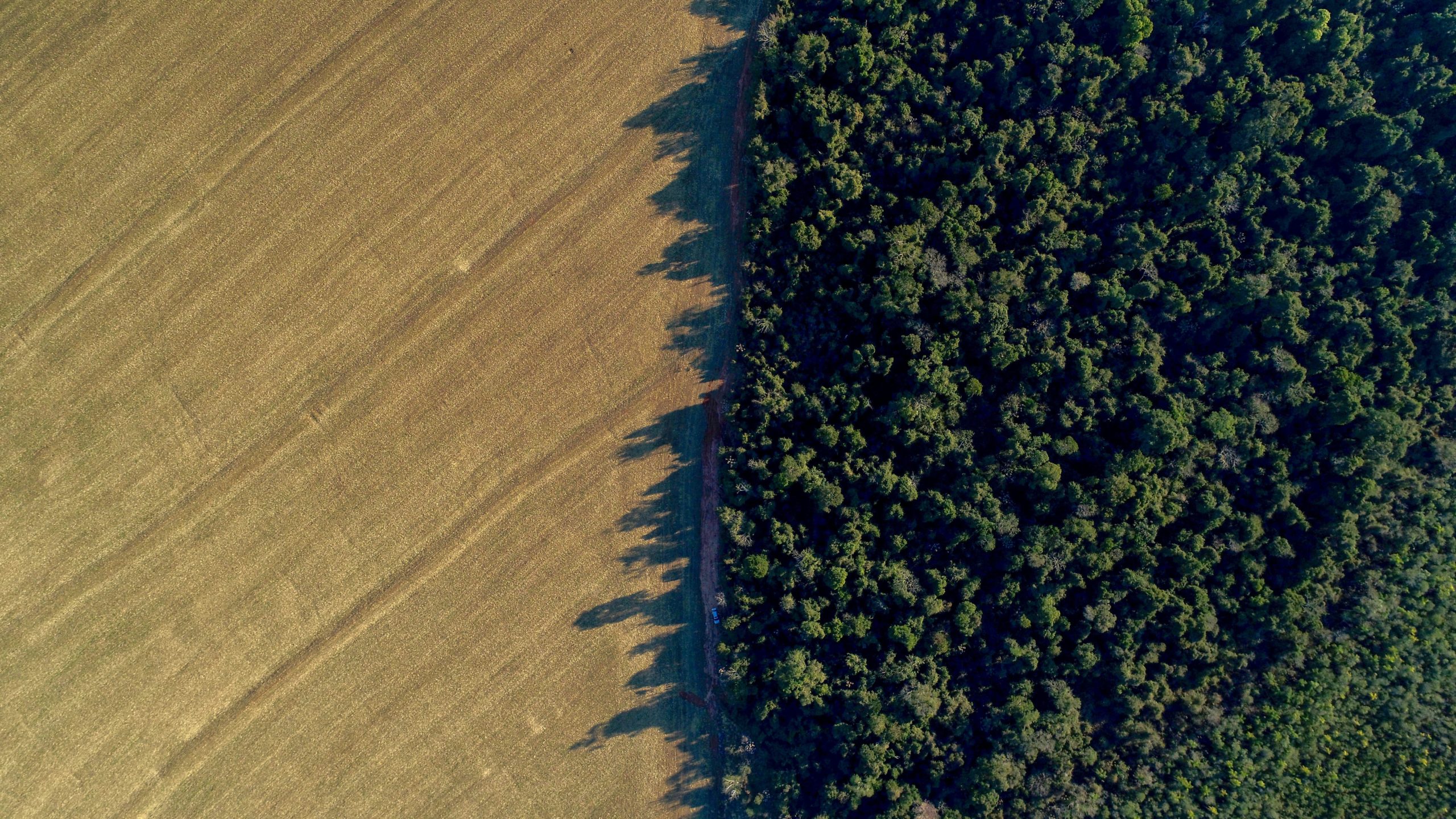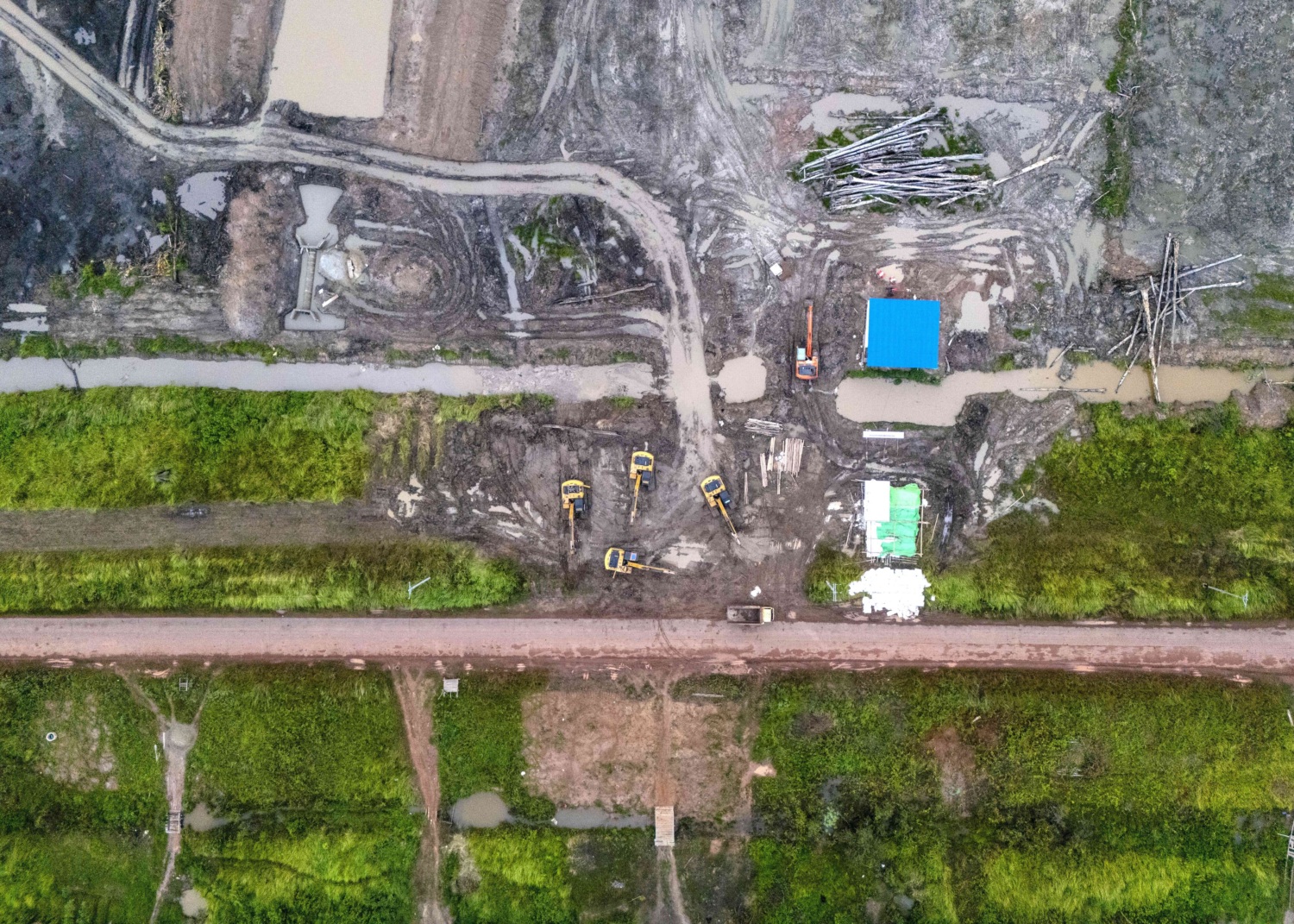
“War on Nature”: New report links JBS to worst chemical destruction of Brazil’s Pantanal using “Agent Orange”
Read in Portuguese, French, Spanish
A new report by Mighty Earth in partnership with Repórter Brasil and AidEnvironment links JBS and other meatpackers Marfrig and Minerva to what has been dubbed a “War on Nature,” in the Pantanal wetlands, a UNESCO World Heritage Site and home to the largest concentration of jaguars on the planet.
A key compound of the deadly defoliant “Agent Orange,” used in the Vietnam War, was sprayed from planes to deliberately kill trees and deforest 81,200 hectares – a vast area four times the size of Amsterdam – on Fazenda Soberana farm in Brazil’s Pantanal, to make way for cattle ranching. Prosecutors called the illegal act “chemical deforestation.”
Pantanal at risk
The findings come as extreme drought and climate change fuels one of Brazil’s worst fire seasons in decades, with Brazilian officials blaming “criminals” for the deliberate fire setting. Fire is used to clear land for agriculture, mostly for cattle ranching. According to Brazil’s National Institute for Space Research (INPE) in August the Pantanal saw an alarming 3,910% increase in fires compared to the same month last year, prompting Brazil’s Environment Minister Marina Silva to warn that “we could lose the Pantanal by the end of this century,” if current trends continue.
João Gonçalves, Senior Director for Brazil at Mighty Earth, said:
“The deliberate killing of countless trees and wildlife in the Pantanal by aerial spraying of a highly toxic compound of “Agent Orange” is a devastating new war on nature, being waged by the beef industry.”
“Our study found that of the recent deforestation on five cattle farms supplying the biggest meat packers – JBS, Marfrig and Minerva – some 86% was in the Pantanal. These hugely important wetlands, the largest in the world and home to keystone species like the jaguar, are largely unprotected and are being razed by ranching.”
“Right now, Brazil is ablaze with forest fires raging across the country, caused largely by criminal activity driven by agriculture. The biome cannot withstand fire and rampant chemical deforestation, which not only strips trees bare over vast areas, but poisons whole ecosystems. The big beef companies need to urgently suspend all ranchers hell-bent on this destruction of nature for profit.”
Environmental crimes in beef supply chain
The new Rapid Response investigation found recent deforestation of 4,005 hectares on two cattle farms in the Pantanal, one of which is linked to Claudecy Oliveira Lemes, the same rancher behind the spraying of the highly toxic Agent Orange compound, 2,4-D. The investigation places one of his farms, Fazenda Soberana in Mato Grosso, at the centre of a beef supply chain linking JBS, Marfrig and Minerva and four top supermarket chains in Brazil – Carrefour, Casino/GPA, Grupo Mateus and Sendas/Assaí.
In total, Lemes has been charged for numerous environmental crimes and has been fined the equivalent of US$ 521 million – a record for Mato Grosso.
70 fire alerts were detected at his farm at Barão de Melgaço in Mato Grosso using INPE’s real-time deforestation tracking system DETER. Further analysis of satellite images confirmed 3,447 hectares of forest was destroyed on Fazenda Soberana between October and November 2023.
In total, the report found 4,651 hectares of recent deforestation from October 2023 to February 2024 on five cattle farms in Brazil’s most threatened biomes – the Pantanal (2), Amazon (2), and Cerrado (1) – the vast majority of which was in the Pantanal.
More than 550,000 hectares of deforestation
As part of a wider investigation of Mighty Earth’s Rapid Response deforestation monitoring program, we found 27 JBS slaughterhouses which supplied beef products to major retailers Carrefour, Casino/GPA, Grupo Mateus, and Sendas/Assaí supermarkets in Brazil, were linked to nearly 470,000 hectares of deforestation and conversion in the Amazon and Cerrado between 2009 and 2023, through both direct and indirect supply chains. Including figures for nine Marfrig and Minerva slaughterhouses, we found the total area destroyed over this period was more than 550,000 hectares.
Tracing beef from store to farm
The investigation examined 1,641 beef products scanned in 120 stores in 52 cities across Brazil between October 12, 2023, and February 2, 2024. The ‘Do Pasto ao Prato’ (‘From Pasture to Plate’) mobile app was used to trace beef products on supermarket shelves to 157 slaughterhouses in 21 Brazilian states. Further analysis using real-time deforestation alerts, satellite monitoring and examination of animal transport ‘GTA’ data on the movement of cattle from farms to 36 slaughterhouses highlights the scale of their links to deforestation.
In the case of Carrefour, we found it sourced more than half (56%) of the beef supplies we sampled from JBS slaughterhouses, meaning the French retail giant is still potentially linked to risky beef sourcing practices, despite making some progress by blocking 177 rogue farms in the Amazon last year and, in a global first for a retailer, establishing a Forest Transparency Platform.
In reply to our latest Rapid Response report, Carrefour said it had already blocked two of the five farms identified and three were not on its database. The French retailer said it was unable to provide further details as it would be a breach of Brazilian regulations. Carrefour provided no information whether the farms in question were indirect suppliers.
Mighty Earth is calling for:
- JBS, Marfrig, Minerva and other meatpackers to investigate our allegations and immediately suspend direct and indirect suppliers involved in deforestation – including the widespread use of highly toxic herbicides, which not only deforest, but pollute whole ecosystems, impacting wildlife and communities.
- Meatpackers to urgently disclose on a public platform the volume and origin of cattle – including lists of all direct and indirect farms, and the proportion of cattle from Zero Deforestation and Conversion (ZDC) farms – and submit all alleged cases of deforestation or human rights violations through a public grievance mechanism to monitor the progress, engagement and suspension of each non-compliant supplier.
- Carrefour, Casino/GPA, Grupo Mateus and Sendai/Assaí to drop all direct or indirect business relationships with meatpackers such as JBS, Marfrig and Minerva involved in deforestation or ecosystem conversion.
- Supermarkets to immediately suspend the slaughterhouses identified in this report as exposed to the highest deforestation rates from 2021 to 2023 until their supply chain is independently, verifiably clean.
- Retailers to submit all deforestation cases to a public grievance mechanism to monitor suspension of all non-compliant farms.
- Retailers to immediately disclose on a public platform the volume and origin of their products which contain beef – including details of the slaughterhouses, lists of direct and indirect farm suppliers, and the proportion of beef products sourced from a verified ZDC beef supply chain.
Ends
Notes to the editor:
Link to images and graphs here
See Rapid Response Cattle #3: Monitoring deforestation in Brazilian supply chains, August 2024, here
Summary of key findings:
- 4,651 hectares of recent deforestation and conversion on five farms in the Amazon, Cerrado and Pantanal biomes, directly or indirectly linked to JBS, Marfrig, and Minerva, which we found supplied beef products to the four major retailers in Brazil – Carrefour, Casino, Grupo Mateus and Sendas/Assaí.
- 86% of the destruction on these five farms from October 2023 to February 2024 was in the Pantanal.
- The wider investigation found that 27 JBS slaughterhouses supplying beef products to Carrefour, Casino, Grupo Mateus, and Sendas supermarkets in Brazil were linked to almost 470,000 hectares of deforestation in the Amazon and Cerrado between 2009 and 2023.
- Including nine linked Marfrig and Minerva slaughterhouses, the total area of forest and natural vegetation lost in nearly fifteen years of destruction is more than 550,000 hectares. Of this total, 45% is in the Amazon and 55% is in the Cerrado, the more threatened of the two biomes.
- Mighty Earth, AidEnvironment and Repórter Brasil investigated a total sample of 1,641 beef products found in Brazilian supermarkets and linked these products to 157 slaughterhouses across Brazil, operated by 108 meatpackers.
- Using the ‘Do Pasto ao Prato’ app data was collected in 120 Carrefour, Casino, Grupo Mateus and Sendas/Assaí stores in 52 cities across 21 Brazilian states. Of these 157 slaughterhouses, 45 are in the Legal Amazon.
- Using Animal Transport Guide data (Guia de Transporte Animal, or ‘GTAs’) covering seven states in Brazil, the analysis identified 3,113 direct and 8,433 indirect cattle suppliers to 36 slaughterhouses, 27 of which are owned by JBS, four by Marfrig, and five by Minerva.
- The analysis for 2009 – 2023 found 181,167 hectares of deforestation linked to potential direct suppliers and 368,859 hectares linked to potential indirect suppliers to the 36 slaughterhouses, in the Amazon and Cerrado, which is disappearing twice as fast as the Amazon, largely due to cattle ranching and soy cultivation to feed animals in intensive livestock systems in Europe and beyond.
How Rapid Response works
The Rapid Response program monitors recent deforestation in beef and soy supply chains in Brazil with the aim of proactively halting deforestation, degradation and logging in its early stages. Mighty Earth in partnership with Repórter Brasil and AidEnvironment monitors tens of millions of acres of the agriculture frontier across Brazil. When deforestation is found in the supply chains of major meat and soy companies, alerts are filed with them, their retail customers, and financiers, to push them to act on deforestation in their supply chains by alerting companies and urging them to cease trading with slaughterhouses and soy farms linked to recent fires or clearances that have been visually confirmed. Rapid Response aims to prevent hundreds of hectares of deforestation becoming thousands.


